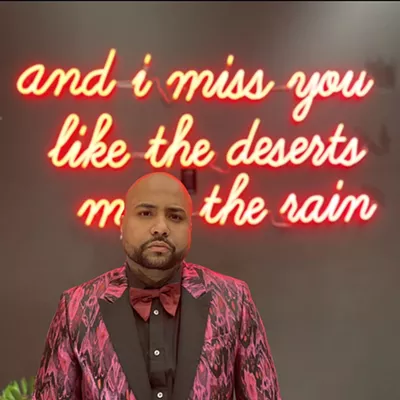Steve Albini's prescient diatribe "The Problem with Music" was published in The Baffler on the heels of the signing frenzy that occurred after the impossible-to-predict success of Nirvana's Nevermind. At the time, Albini's essay was more expressive of the disdain in the punk community for corporate sellout. But the pitfalls he described were very real, and those bands that dismissed Albini's warning (Jawbox, Helmet and recently Spoon, to name but a few) as mere Cassandra-complex prattle soon found themselves swimming in the trench. But outside the staunchly independent elements of the alternative rock community, however, the imbalance of power was presumed intractable. Which brings us to the only person brazen enough to challenge this orthodoxy from her relatively mainstream position.
Courtney Love finding herself in the news is, by this point, not even really news. The headline-grabbing, makeup-throwing rocker-cum-actress is yet again clamoring for the spotlight. But for perhaps the first time in her career, no one save the Big Five record labels is cringing. You see, Love's current attention-seeking gambit has no less an aim than changing the way the entire music industry does business.
The rumpus all started when Love's former, more artist-friendly label Geffen was folded into Interscope Records by parent überlabel Universal Music Group. Love's Geffen contract was thereby "reassigned" to Interscope, a label she had rebuffed during the 1992 bidding war over her band Hole. After several problems with Interscope, including what Love felt was inadequate promo support for Hole's last album, Celebrity Skin, she sought to have her Interscope contract dissolved under a California statute prohibiting personal service contracts of longer that seven years.
Since major-label recording contracts share the feature of label option for up to seven albums, which as a practical matter would be next to impossible to complete in seven years or fewer, Love felt she had an ample legal basis for dissolution. Universal, citing the exemption to the law that Recording Industry Association of America lobbyists had secured in 1987, sued for breach of contract. What UMG wags presumed was mere grandstanding by the grandmistress of the public spectacle so as to obtain more favorable contract terms for herself has now become Love's personal crusade to force the industry to discontinue its exploitative practices. And as Le Tigre's Kathleen Hanna, Kurt and Courtney director Nick Broomfield, and Mary Lou Lord can attest, Courtney's always spoiling for a fight. "If I have to stand alone, I'll stand alone. I love fighting," Love avers in the latest Rolling Stone. Duh.
Her most recent salvo is an open letter to fellow recording artists that appeared, among other places, in the April 23 issue of The Nation. Love points out many of the iniquities inherent in the band-industry relationship, the most significant of which are as follows:
"1. No one has ever represented the rights and interests of recording artists AS A GROUP in negotiations with record companies.
"2. Recording artists don't have access to quality health care and pension plans like the ones made available to actors and athletes through their unions.
"3. Recording artists are paid royalties that represent a tiny fraction of the money their work earns."
Ultimately what is being sought is a sea-change that can only come about through collective bargaining through unionization. Her letter marks the initiation of a grassroots process, supported by a growing coalition of artists and organizations, that aims to do just that.
As she points out to the public and her fellow artists, "Artists have all the power. They create the music that makes the money that funds the business. No one has ever harnessed that power for artists' collective good."
It is this type of the-power-is-in-our hands realization that historically has been the fundament of any successful labor movement. But what must happen now is the long slog through the morass of lawyers and lobbyists and politicians that the recording industry has and will use against the movement. This effort must be a sustained one, and Courtney Love will not be able to keep it up all by herself. Fortunately, Love seems to have struck a distinct chord (pardon the pun) with her fellow artists, and the ball is rolling.
The grunt work will have to be carried out on an organization-size level. Johnny Temple, who among other things writes for The Nation and plays in Girls Against Boys, mentions the Future of Music Coalition (www.futureofmusic.org) in his introduction to Love's letter in The Nation as a likely vehicle for putting the screws to the labels. Love is also soliciting artists to come forward and lend their support and horror stories to the movement through her manager's Web site (www.theredceiling.com) to make the case, which may ultimately be brought before Congress, as compelling as possible.
While Eddie Vedder's unsuccessful challenge of Ticketmaster may have some people thinking that taking on the recording industry is doomed to failure, Love cites the Vedder precedent as a regrettable lack of esprit de corps among recording artists, and wishes she had stood with him. "Eddie Vedder was right," says Love in Rolling Stone. "When he took on Ticketmaster, nobody stood up with this guy. That image of him standing up alone in front of Congress has haunted me. And by the way, where were U2 and R.E.M. and everyone else at that moment?"
Perhaps the object lesson Vedder's failure imparts will prevent that breakdown of solidarity from happening again. Perhaps this time Bono will show.







